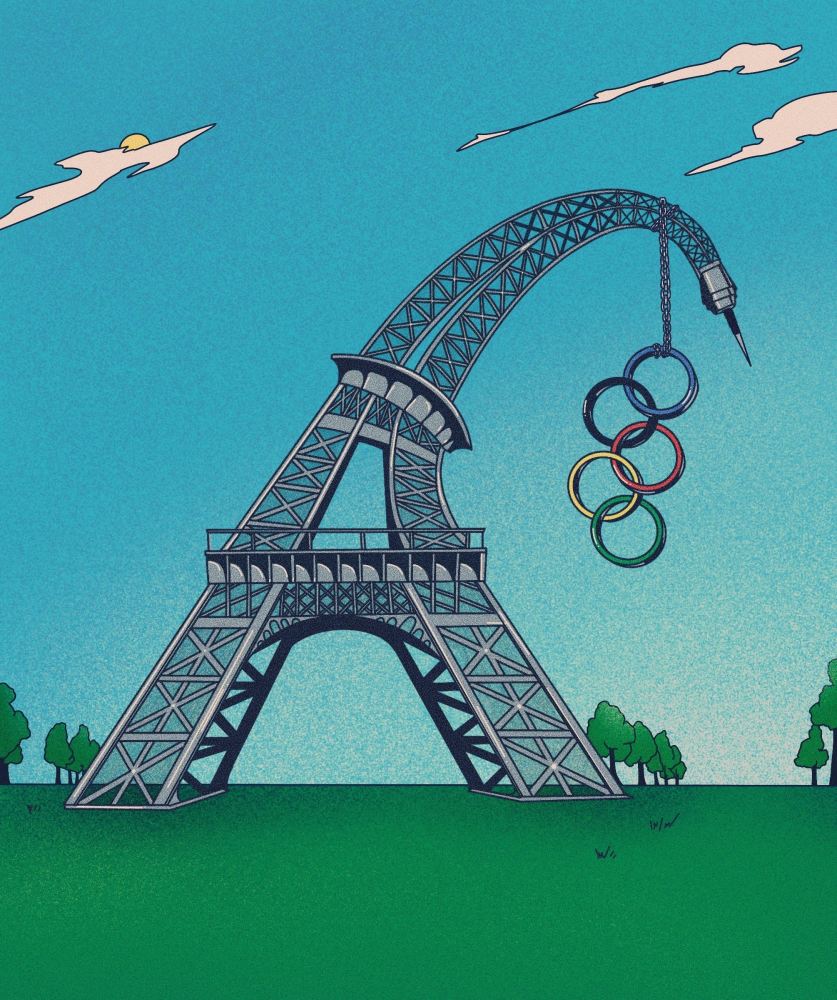Paris Olympics: A tale of anticipation and unexpected challenges
A city poised for a grand return
The Summer Olympics were expected to be a significant boost for France’s economy. However, in the heart of Paris, the reality seems starkly different. On a sunny July day in the Tuileries Gardens, a café owner, ideally situated between the Louvre and the Champs-Élysées, found himself staring at empty tables. The anticipated throngs of tourists were nowhere to be seen, and the few sports fans who had arrived were met with pedestrian restrictions and security barriers, effectively isolating his business.
The pandemic’s lingering shadow
The last two Olympic Games, held in Tokyo and Beijing, were marred by the pandemic, drastically reducing the influx of foreign visitors. With the shadow of COVID-19 lifting, Paris was supposed to herald a grand return, reestablishing the Olympics as the premier athletic showcase against the backdrop of the world’s most romantic city. This vision had raised spirits in 2020, prompting French officials and urban planners to embark on infrastructure projects exempt from lockdown restrictions. Hospitality businesses were encouraged to ramp up staffing in anticipation of a summer rush. Yet, with the Olympic cauldron set to be lit in just days, the tourists remain elusive.
Domestic enthusiasm vs. international absence
Tour operator Jess Jeacle expressed the collective shock and disappointment of the local business community. “We were promised so many more visitors. We thought it would be great, but we’re looking at around 50% fewer bookings than last year,” she lamented. With international visitors failing to turn up in force, French fans are expected to fill the stands. Domestic visitors account for a staggering 85% of the 11.3 million attendees expected this summer and are responsible for more than 60% of all tickets sold. However, on social media, locals are not expressing pride but rather frustration over construction projects and dire predictions about the Games.
A mayor’s bold promise and political turbulence
Months ago, Paris Mayor Anne Hidalgo tried to drum up enthusiasm by pledging to swim in the Seine, capping the city’s $1.5 billion project to clean up the notoriously toxic river. However, locals responded with the social-media campaign #JeChieDansLaSeine, encouraging Parisians to defile the water on the day of Hidalgo’s dip. Meanwhile, Netflix viewers binged on Xavier Gens’ horror satire “Under Paris,” which imagines a triathlon athlete navigating a river full of sharks and trash.
Before the mayor could show off her breaststroke, President Emmanuel Macron dissolved the National Assembly, plunging the country into a month-long political storm that culminated in a snap parliamentary election on June 23, the very day of Hidalgo’s intended swim. The event was delayed, but after two rounds of voting, with fears of a far-right takeover temporarily allayed, the 65-year-old mayor finally made good on her promise on July 17.
Strikes and stability
The media buzz from Hidalgo’s swim was short-lived. A day later, the labor union CGT announced plans for a 3,000-person strike set to coincide with the Olympic opening ceremony on July 26. Paris 2024 chairman Tony Estanguet admitted, “The last few weeks have been intense. We knew we were tackling a big challenge, so it was important to keep some stability in the preparation of these Games.”
Estanguet, a gold medal-winning slalom canoeist turned organizing committee president, had hoped for a “truce” because the Games are symbolically important. “The Olympic Games are about unity,” he said. “Athletes are just athletes, and they have absolutely no power over the political decisions of each country, but the world of sports still offers this image of universality.”
The logistical labyrinth
Staging the Olympic and Paralympic Games in the heart of Paris comes with its own set of challenges. Key access points for shipping companies using the Seine as a transport route will be blocked off, and areas around competition sites will remain inaccessible to those without a QR code. The Paris Terminal municipal port is forecasting a 12% dip in revenue, and businesses in affected zones are facing greater uncertainty as customers avoid entire neighborhoods due to changing regulations and restrictions.
Paris Terminal CEO Juan-Manuel Suárez acknowledged the difficulties but remained optimistic. “From a business perspective, things are not so good. Presenting my results to the board at the end of the year might be a bit painful. But right now, I’m really excited about the Games, and personally, I’m very proud!”
Navigating scams and misinformation
Locals and attendees can purchase an access-granting Pass Jeux (“game pass”), but these have given rise to phishing scams. Parisians have reportedly received emails promising better accessibility if they click on seemingly innocuous links. Although events can be attended with just a ticket and nearby restaurants and hotels with proof of reservation, local authorities have struggled to communicate this information clearly, further depressing tourism.
Chloé Colin, who manages the wine-bar annex to the Bistrot Paul Bert, a popular destination for international gourmands, shared her frustrations. “Regular customers have been completely transparent and honest, telling me they won’t come to Paris this summer because the constraints around transportation and mobility really piss them off.”
A city in waiting
As the Olympic Games approach, Paris finds itself in a state of anticipation and uncertainty. The city, known for its romance and charm, is grappling with the logistical and economic challenges of hosting a global event. While the Games promise moments of unity and athletic excellence, the road to this grand showcase has been anything but smooth. For now, Paris waits, hoping that the spirit of the Olympics will eventually bring the world to its doorstep.

 Italian
Italian







